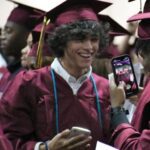Global Courant 2023-05-23 19:59:53
Humanitarian organizations say time is running out as affected communities have been without or with little food for months.
Humanitarian organizations are calling for full funding of the United Nations’ $7 billion call for the Horn of Africa at a pledging conference starting Wednesday, citing a growing crisis and the need for urgent life-saving intervention.
The region is facing its worst drought in 40 years, with more than 43.3 million people needing assistance in Somalia, Ethiopia and Kenya. More than half of them do not have access to sufficient food, according to the UN.
The UN is hosting a high-level pledging meeting at its New York headquarters on Wednesday, encouraging member states and partners to provide financial support to the crisis in the Horn of Africa.
The International Rescue Committee said calls so far have received less than a quarter of the donations needed.
“Efforts to combat food insecurity urgently need to be stepped up by a larger group of governments, international financial institutions and climate actors,” said IRC President and CEO David Miliband.
Ports in Ukraine were closed, limiting food aid shipments. But aid organizations such as the Norwegian Refugee Council have said a focus on the Ukraine crisis has reduced funding available for work in the Horn of Africa.
Other humanitarian organizations say time is running out as affected communities have been without or with little food for months.
“It is beyond urgent… We averted famine before, and we can do it again… People are already dying and there is no time for explanations,” said Deepmala Mahla, CARE’s vice president for humanitarian affairs International, to the press.
A famine has yet to be declared in Somalia, where more than six million people are starving, but some humanitarian and climate officials have warned that trends are worse than during the 2011 famine in Somalia, which killed about 250,000 people.
Formal famine declarations are rare because data to meet the benchmarks often cannot be obtained due to conflict, poor infrastructure or politics. Governments are also wary of being associated with a term of such stark scope.
Local non-governmental organizations such as the Hormuud Salaam Foundation in Somalia say sustainable funding is needed.
“For sustainable change, we need to equip local organizations and local people with the resources to face tomorrow’s inevitable climate shocks,” the foundation’s CEO, Abdullahi Nur Osman, told the Associated Press.
Ongoing conflicts in some of the affected areas, coupled with the effects of climate change, have exacerbated the crisis.
Parts of Somalia and Ethiopia are currently experiencing flooding during the ongoing rainy season and millions of people have been displaced.
The affected areas, largely inhabited by pastoralists, had experienced prolonged dry seasons, killing livestock, which is a source of income.
Parts of Somalia are grappling with insecurity due to the al-Shabab rebel group that has carried out numerous large-scale attacks.
Northern Ethiopia was in conflict for more than two years as regional forces clashed with national forces. Hundreds of thousands of people died and the situation remains fragile, seven months after the signing of a peace agreement.
(TagsToTranslate)News








